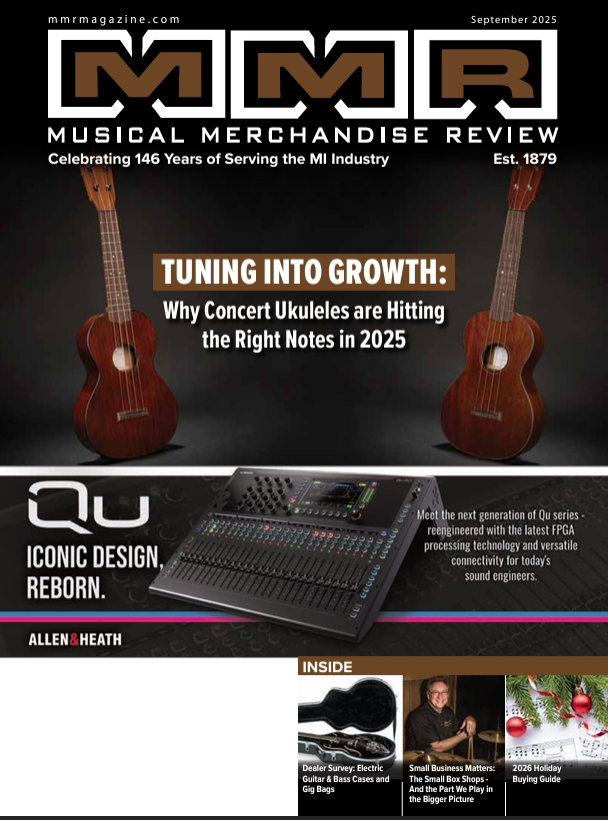 Whether we like it or not, as owners and managers, department heads and/or music teachers, our manner and style of leadership greatly determines its effectiveness.
Whether we like it or not, as owners and managers, department heads and/or music teachers, our manner and style of leadership greatly determines its effectiveness.
Not a day goes by that we don’t witness both effective and ineffective styles of leadership. On occasion, when we least expect it, we do witness great leadership. For example, people surprise us by doing the unusual, showing their leadership through gestures and civilities. It is the element of surprise that enhances that moment. The key is offering an unexpected gesture of kindness, something simple, to those who don’t expect it. Holding a door or an elevator for someone or returning someone’s grocery cart, or simply sharing a smile and projecting positive energy while saying, “Have a great day!” is a form of leadership.
The easiest opportunity to display leadership and advance “goodwill” in the workplace occurs when you recognize our coworkers for their contributions and show respect to our peers. It’s empowering to everyone when you share your appreciation for them, regardless of one’s position. Although respect does not have a dollar value attached to it, it’s quite possibly our most important currency. Nothing is more powerful in the workplace than respect and goodwill. Respect and goodwill build trust, and it’s important never to undermine trust in the workplace.
The old adage “lead by example” never tires. You won’t need horn blowing or a tickertape parade, just the understanding that your simple gestures demonstrate civility. “If” you are a good leader, the effect of “your way” will always enhance the mood of those you lead and, from that moment forward, you have made a positive impact on the other person’s day. People are more likely to pay your kindness forward; thus, your impact can be significant.
Of course, the opposite is just as true, if not more powerful. Being disrespectful to others has a longer lasting effect then showering them with praise. Think about the last time someone used their position to intimidate or demean you. It happens all the time in the work force. The damage and hangover from a boss or co-worker being insensitive lasts much longer than the effect of praise. Intimidation is a puny tool and when you bruise someone’s feelings it takes much longer to heal because criticism feels personal. The sting of criticism’s taint lingers longer then the sweet aroma of praise.
The intoxication of a leadership position is a tonic for fools, yet the consumption rate is staggering. And if by chance the leadership role goes to someone drunk on titles or position, morale will surely plummet. In this instance, one’s manner of leadership style matters more than money. That’s because respect is a currency that doesn’t deplete; it actually appreciates in value as time passes.
The definition of our roles in leadership morphs as the responsibilities of our positions grow. The role of a leader in the management of an organization carries more complex responsibilities than the role of a music teacher for example. This is true only because a music teacher’s role is generally more consistent. It is no less important.
The different roles also require different skill sets. I’m not telling you anything here you don’t already know. The owner of a store has more responsibility than a manager, and a manager has more than an employee. But respect has no master. Its power belongs to all, and when you give it, you receive it in return, no matter your title.
So here are a few things to remember:
As you give, you get. All relationships are a reflection of everyone involved. If you don’t like what you see reflecting back to you in the harmony mirror, before you criticize, check your pitch. Here is a cold truth: if you feel you are being unfairly chastised or intimidated by management, it may be time to look at other possibilities.
The higher you climb in position, the farther you have to fall. Leadership is not for the faint of heart. Being a business owner or business manager comes with huge demands. You are always expected to have the answers and never to make mistakes. But, that’s an unrealistic expectation. So higher-ups tend to drink from the cup of ego to add a layer to their armor. My advice here is put the cup down.
Lastly, good employees are the best asset any business has and, as leaders, we must embrace their opportunity to grow. We can not expect them to know what we as leaders have to deal with, and we must teach our staff to understand us, while we strive to understand them. Most importantly, we must ask our teachers to do the same, and ask the same from them in return.
Always remember: Play the long game.



























